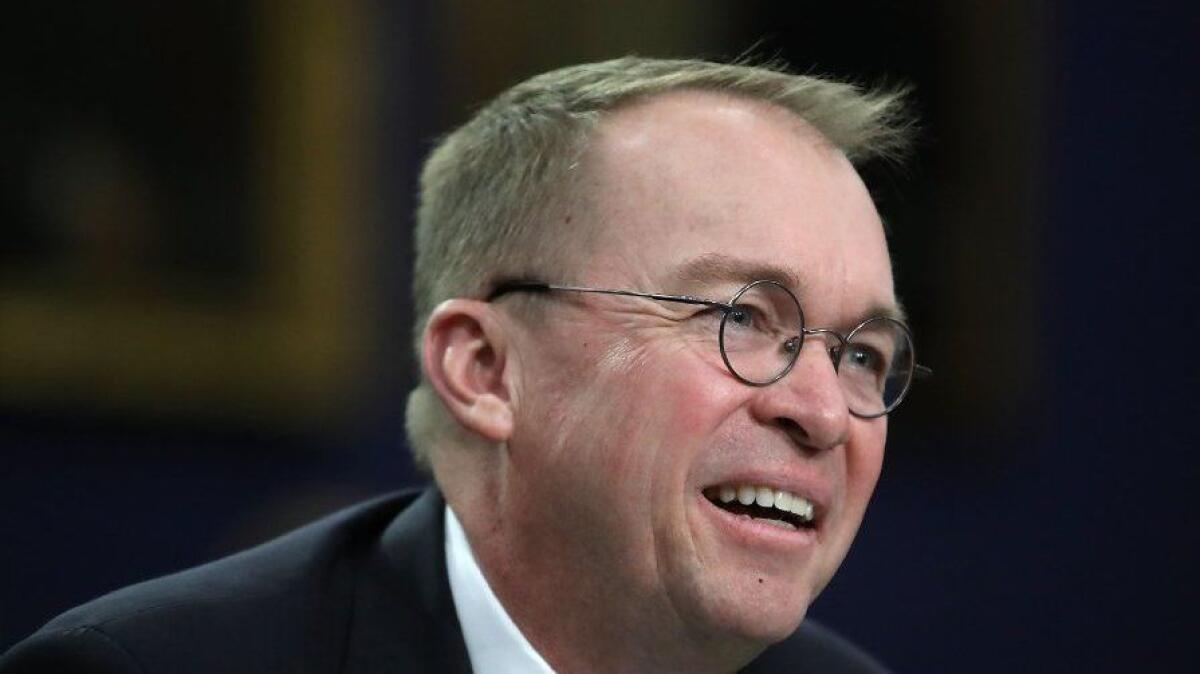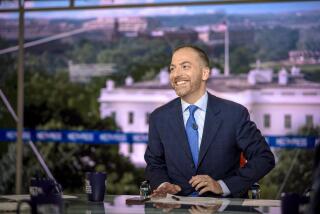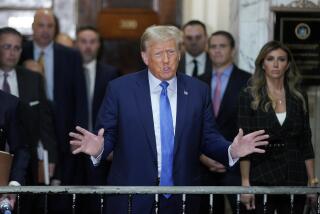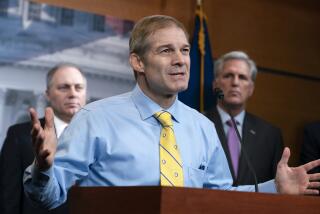Trump, after public frustration, picks budget chief Mick Mulvaney as his acting chief of staff

President Trump on Friday named Mick Mulvaney, now his budget director, as his acting chief of staff, only temporarily solving a management and public relations problem that has consumed the White House in the week since the president announced that John F. Kelly would leave the job by the end of the year.
Trump tweeted the news after the close of business, just hours after a spokesperson had told reporters that the president would take his time and that the search could go on for several weeks. Trump wrote that Kelly would remain through the end of the year, presumably to help with the transition.
But neither Trump’s tweets nor the limited guidance from White House aides who refused to be identified clarified for reporters how long Mulvaney would stay on or whether he would return to the budget office at what is typically a busy time there.
“There’s no time limit,” a senior administration official said of Mulvaney’s tenure. “He’s the acting chief of staff, which means he’s the chief of staff. He got picked because the president liked him. They get along.”
The official said that Russ Vought, now the deputy director of the Office of Management and Budget, would be Mulvaney’s replacement as director, though it’s also unclear how long that might be.
Trump’s resort to a temporary chief of staff came after several candidates had declined to be considered, prompting days of embarrassing publicity suggesting that a once-plumb job had lost its allure in his chaotic White House. His first pick, Vice President Mike Pence’s chief of staff, Nick Ayers, quickly pulled himself out of consideration, leaving the president without a fallback.
The latest to bow out, former New Jersey Gov. Chris Christie, did so on Friday. Trump had said last Saturday that it would be only one or two days before he found a permanent replacement for Kelly.
In tapping Mulvaney, Trump for a second time was turning to the conservative former congressman to plug a job hole. Even as Mulvaney held the job as budget director, he served for more than a year as acting director of the Consumer Financial Protection Bureau, scaling back regulation of the financial industry from an office that he and other Republicans had opposed since its creation during the Obama administration.
Mulvaney only gave up that position on Monday, after Trump’s permanent pick for the job, Kathy Kraninger, was sworn in following her confirmation by a narrow vote of the Senate.
Whether chief of staff temporarily or not, Mulvaney takes a job that is one of the hardest in Washington, given Trump’s propensity for ignoring advice and resisting structure, as well as the pressure of dealing with the swirl of investigations threatening the president.
Yet Trump did not pick an ideal time to upend his budget office. Not only is the office finishing work on the budget for fiscal year 2020, which Trump is supposed to send to Congress early in 2019, but it also is dealing with the threat of a partial government shutdown next week.
Several federal departments and agencies will run out of funding Dec. 21, and Trump has threatened to let that deadline pass and shut them down unless Democrats agree to a final spending bill with significant funding to build a border wall. Democrats, and some Republicans, have said they will not support the $5 billion that Trump demands.
Though Mulvaney had railed against budget deficits as one of the most conservative members of Congress, he has managed a budget for Trump that is projecting annual deficits larger than any since just after World War II. In the aftermath of the big tax cuts that Trump signed into law a year ago, the current year’s deficit is expected to approach $1 trillion.
Follow the latest news of the Trump administration on Essential Washington »
Twitter: @noahbierman
More to Read
Get the L.A. Times Politics newsletter
Deeply reported insights into legislation, politics and policy from Sacramento, Washington and beyond. In your inbox three times per week.
You may occasionally receive promotional content from the Los Angeles Times.







